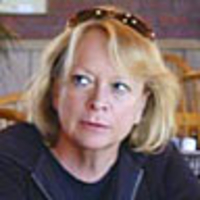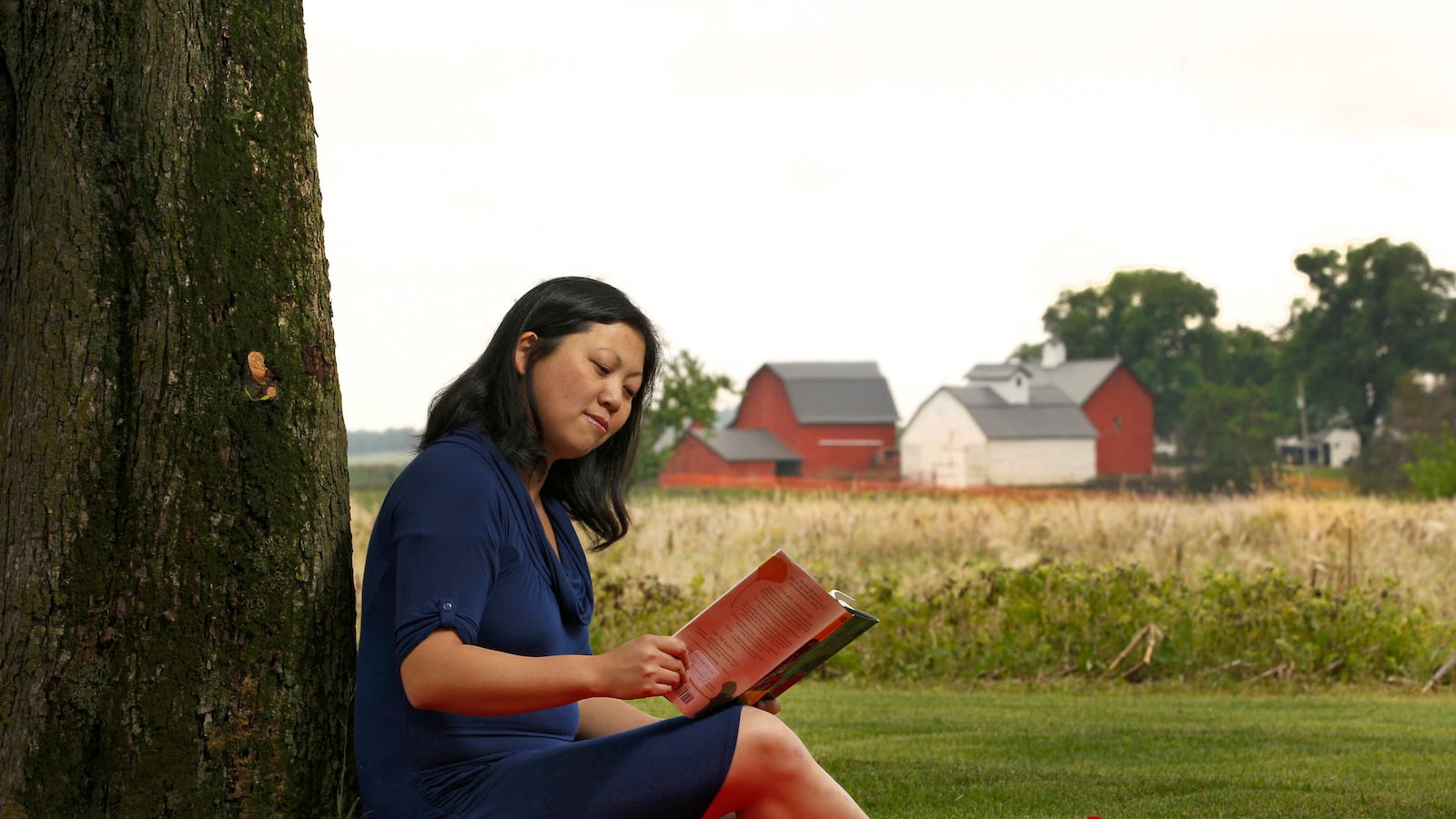Beijing-born writer Yiyun Li has had a celebrated career as a novelist and short story writer. Her honors include the 2005 PEN/Hemingway award for her first story collection, A Thousand Years of Good Prayers, published not long after she graduated from the Iowa Writers’ Workshop; the Frank O’Connor International Short Story Award, The Guardian first book award, and a MacArthur “genius” grant. All while writing in a language she learned as an adult. She’s been called China’s Chekhov.

Whenever I’ve met up with Li—at literary events in New York, at the rustic Redwood Café in Cotati, California, where we recently had lunch after our shared experience as judges of the Story Prize—she has glowed with happiness. Her work, on the other hand, is filled with nuanced descriptions of the darker currents of life—evil and malice, loneliness and grief.
Her second novel revolves around a murder, and has a deceptive title: Kinder than Solitude. “As one of the characters says in the novel, solitude is never unkind,” she explains, “but there is something more important—the true connection to another person—that is kinder than solitude.”
You’re living in Oakland, married, with two young sons, writing, and teaching at University of California at Davis. How do you manage this juggling act?
Once I asked Marilynne Robinson how she managed to be a writer with two sons, she said, “Just wing it.” I like to think my life has three parts at the moment: family, writing, and public life (including teaching and other obligations). The best-case scenario, of course, is for the three parts to be separate, and if one part is troubling me (for instance, writing is not going well), I can always move to another part (there is the dinner to cook).
My children are 12 and 9 now, so now I write in the mornings. They have been raised like free-range chickens, and I am rather a Chinese chicken mom, which seems to make everyone happy!

Do you still have family in Beijing? How has becoming a U.S. citizen changed your writing?
My parents live in Beijing. We go back to visit, though not as frequently as I wish. The last time I was in Beijing was in 2008, so it’s about time to visit again.
Having lived in America for years now and having become a U.S. citizen—I don’t think these things have changed my writing fundamentally. The characters I am interested in are often those who are either pushed off to the edge of life, or else those who choose not to be at the center of any stage. In that sense, the physical setting of a country matters less than the internal landscape. That said, certainly American has come into my fiction more: some of my recent stories and part of Kinder Than Solitude are set in America.
In this new novel, you alternate between Beijing and the U.S., and shift back and forth in time between 1989, when the protests occurred at Tiananmen Square, and the present day. What do you recall about the government crackdown as reported within China?
I grew up in Beijing, and like many people of my generation, had first-hand experience with the Tiananmen Square protest, the aftermath, and the government cover-up. The historical event, however, serves as an oblique background for the novel. What’s interesting to me is that the three main characters, in their present life, refuse to consider the massacre as one of the moments that shaped their lives. Their denial is interesting to me, though for them it is more of a personal denial of a personal tragedy rather than historical tragedy.
Your character Ruyu is an orphan newly moved to Beijing. She lives with Shaoai, an older student at the university whose protests have led to her being in trouble with authorities, Shaoai’s parents, and her elderly grandfather in an apartment in a small community in Beijing. You describe communal life in the quadrangle as “everyone’s business pertinent to the next person” from breakfast on. Were you raised with this sort of communal life?
The Beijing where I grew up was a metropolis of villages. (It has changed in the past twenty years.) As you would find in a small town in America or in Norway or in any country, people in these villages (they could be quadrangles, or apartment blocks, or clusters of dorm rooms remodeled to house workers and families) would know each other’s life intimately. My life today is different, but what one has lived through remains in one’s memories. As this novel is largely about memories, I reconstructed Beijing from my memories.
This novel is on one level about a murder—but it’s a murder that ends up drawn out over 21 years before the victim dies. What made you decide to write a murder mystery? And to prolong the death in this way?
A murder is a crime with a plot, but in this case we could almost say it is plot-less, or not a well-plotted out crime. That’s one reason that all who are involved in this case may be guilty, or at least experience moral murkiness. What’s interesting to me is that characters (or people) always live in multiple times at the same moment: the teenagers and their older selves have to deal with the same puzzle, in a different way.
Ruyu, her teenage boyfriend Boyan, and their mutual friend Moran are teenagers at the time of the murder. All of them are suspects. And all three later have failed marriages and aren’t able to development close relationships, it seems. Is this because of the murder? Are their emotions “frozen”?
I don’t think their emotions are frozen. In fact, they may experience too much at times, though they refuse to acknowledge that, even to themselves. I think that is what I wrote to find out: how they have become people of self-deception or self-denial; how they have let their judgment (and misjudgment) shape their lives and the lives of others around them.
Do you have a sense that evil is at work in the character of the murderer? Your influences include William Trevor, Tolstoy, Turgenev, Dickens, Graham Greene, V.S. Pritchett, and Elizabeth Bowen. Did you have any of these in mind while working on Kinder than Solitude?
While working on the novel, I have been reading and rereading all these authors. What I’ve learned from these authors is how much a character can remain mysterious and unknown, and a writer’s job is to get as close as possible to the character, to strip any layer of falsity.






